EU deal is strong and pragmatic, Stephen Crabb says
- Published
Crabb: 'Strong basis' to stay in
The EU deal struck by the prime minister has been welcomed by Welsh Secretary Stephen Crabb.
The agreement, external lets the UK limit some EU migrants' benefits and excuses Britain from any "ever closer union".
Mr Crabb said it was "a strong and pragmatic basis to say on balance we should stay in", with a referendum called for 23 June.
Labour said it would campaign to remain in the EU, while Plaid Cymru said the Tory party would "tear itself apart".
Mr Crabb gave his comments on his way to an emergency cabinet meeting on Saturday called by David Cameron, who then announced the referendum date.
The Welsh secretary previously said it would be in Wales' interests to remain in the EU on renegotiated terms, despite him not being "a member of the EU fan club".

Following the prime minister's announcement, Mr Crabb stressed his support for Britain remaining in the EU, saying on Twitter, external that committing the UK to an "ever closer union" had been ruled out.
A number of cabinet ministers, including Justice Secretary Michael Gove, are set to campaign for the UK to leave the EU.
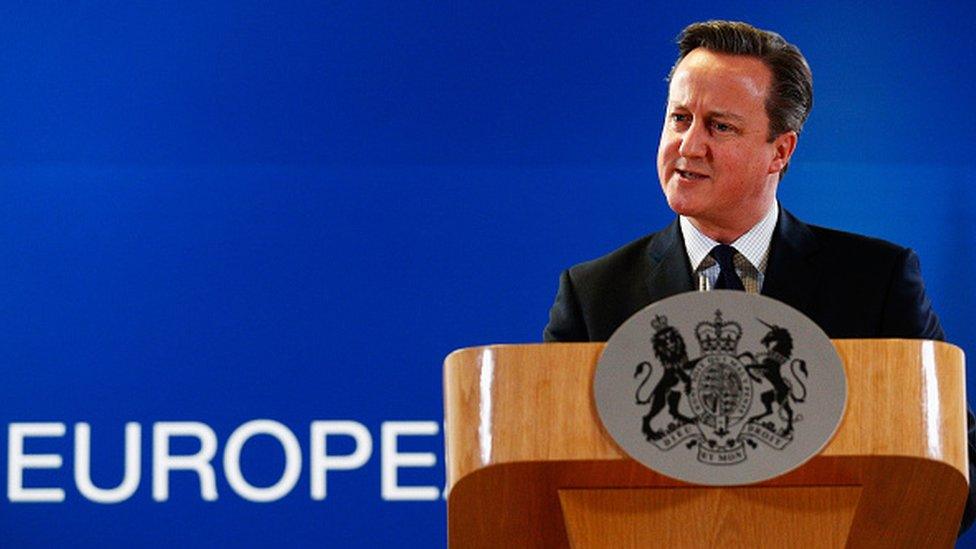
David Cameron claimed his reform deal answered many of the "frustrations" the British public have with the EU
Key points of the EU deal
An "emergency brake" on migrants' in-work benefits for four years when there are "exceptional" levels of migration. The UK will be able to operate the brake for seven years
Child benefit for the children of EU migrants living overseas will now be paid at a rate based on the cost of living in their home country - applicable immediately for new arrivals and from 2020 for the 34,000 existing claimants
The amending of EU treaties to state explicitly that references to the requirement to seek ever-closer union "do not apply to the United Kingdom", meaning Britain "can never be forced into political integration"
The ability for the UK to enact "an emergency safeguard" to protect the City of London, to stop UK firms being forced to relocate into Europe and to ensure British businesses do not face "discrimination" for being outside the eurozone

Labour leader Jeremy Corbyn told his party's Welsh conference in Llandudno that it would campaign to keep Britain in the EU, despite the "sideshow" of Mr Cameron's deal.
Mr Corbyn said the union had delivered investment and protection for UK workers, but he wanted "progressive change... to make the EU work for working people".
He said the changes the prime minister had negotiated were "largely irrelevant to the problems most British people face and the decision we must now make".
Plaid Cymru MP Jonathan Edwards said Mr Cameron's "foolish" decision to give his MPs a free vote in the EU referendum would see the Tory party "tear itself apart".
He also warned against letting the referendum overshadow the "vital" Welsh assembly election in May, urging people to choose the party which had "the best interests of their families and communities at heart".
Nathan Gill says there is no trade benefit from staying in the EU
UKIP Wales leader Nathan Gill said it was up to his party to "fight for democracy" as there was a "total dearth" of voices in Wales campaigning to leave the EU.
"We can show the people of Wales how EU membership is killing off industry, stagnating the economy, placing farming and fishing in a stranglehold," he said.
"Only by leaving can decision-making be brought closer to the people of Wales as many of those powers could come to the Senedd."
Three of the 11 Welsh Tory MPs have said they will vote for Britain to leave the EU - former Welsh Secretary David Jones, Chris Davies and David Davies.
Five have declared in favour of remaining in the EU - Mr Crabb, Guto Bebb, Byron Davies, Simon Hart and Craig Williams.
Three have yet to declare their view - junior Wales Office Minister Alun Cairns, Glyn Davies and James Davies.

Analysis by Vaughan Roderick, BBC Welsh Affairs editor
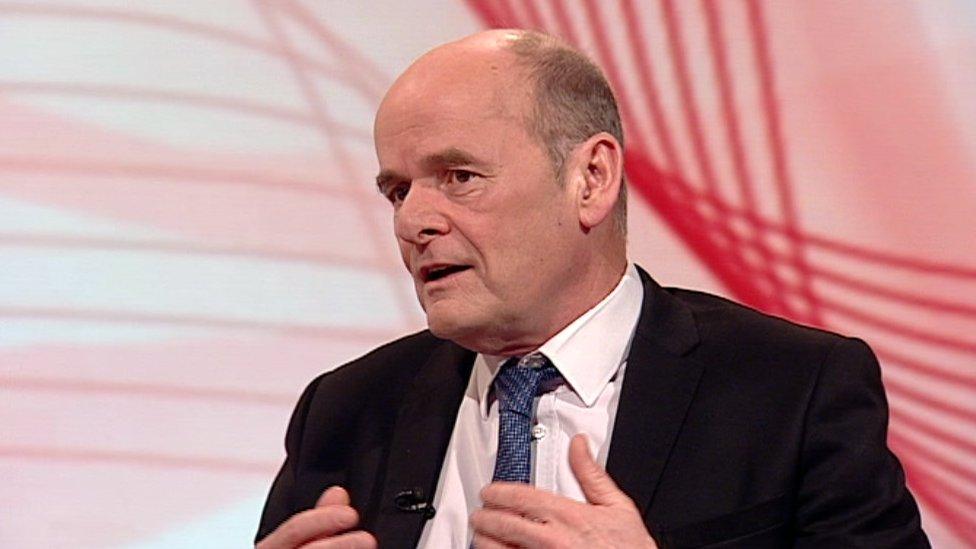
The timing of the EU referendum will have an impact on the Welsh assembly election.
I think we are going to have a flurry around Europe over the next few days, but 23 June is still a long way away, so I suspect it will die back a bit.
I think all the parties will attempt to put the elections - in Wales, Scotland, Northern Ireland and the London mayoral election - front and centre as we move closer to May.
The Europe debate may die back a little bit, but it is going to be there, murmuring in the background.
And that is going to be a problem for all the parties.
- Published20 February 2016
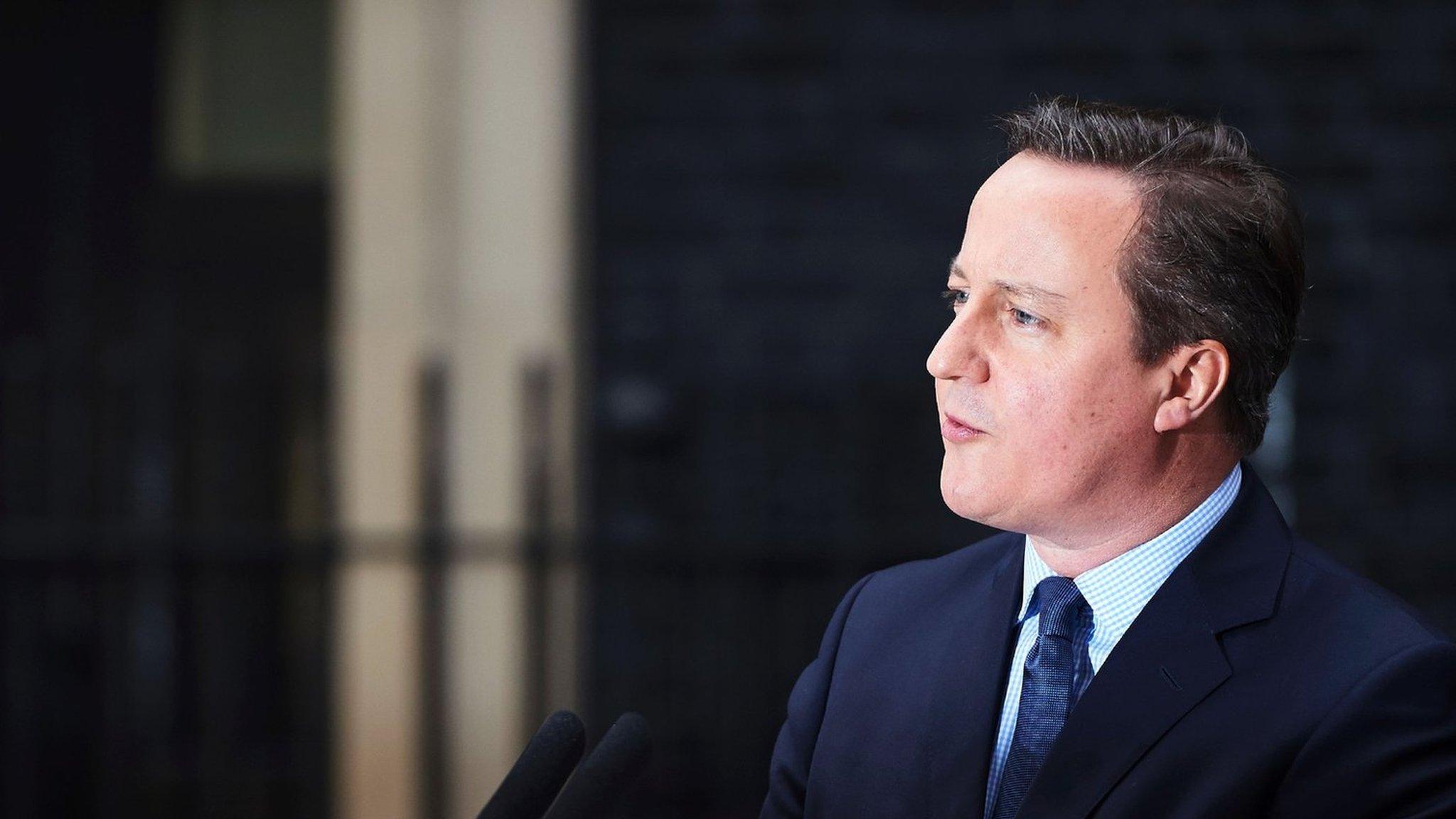
- Published20 February 2016
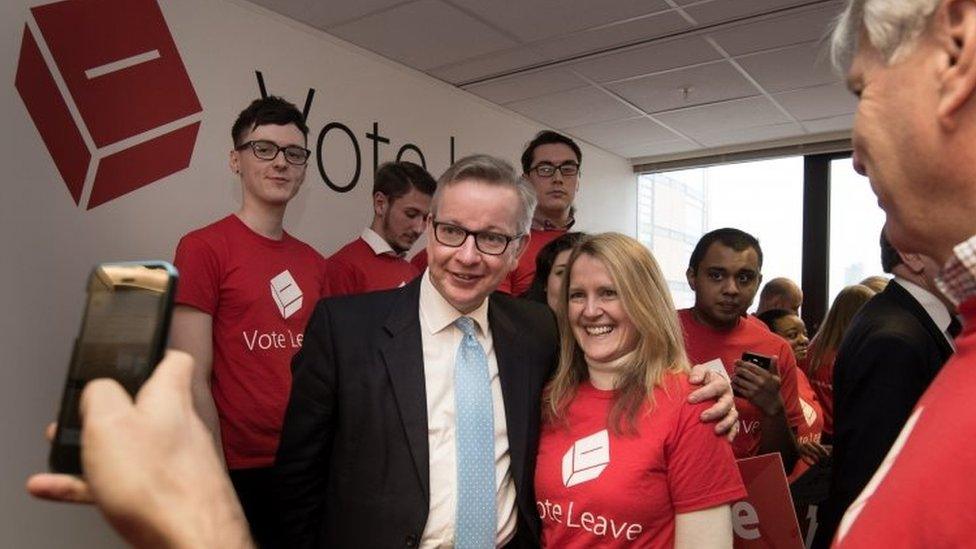
- Published12 January 2016
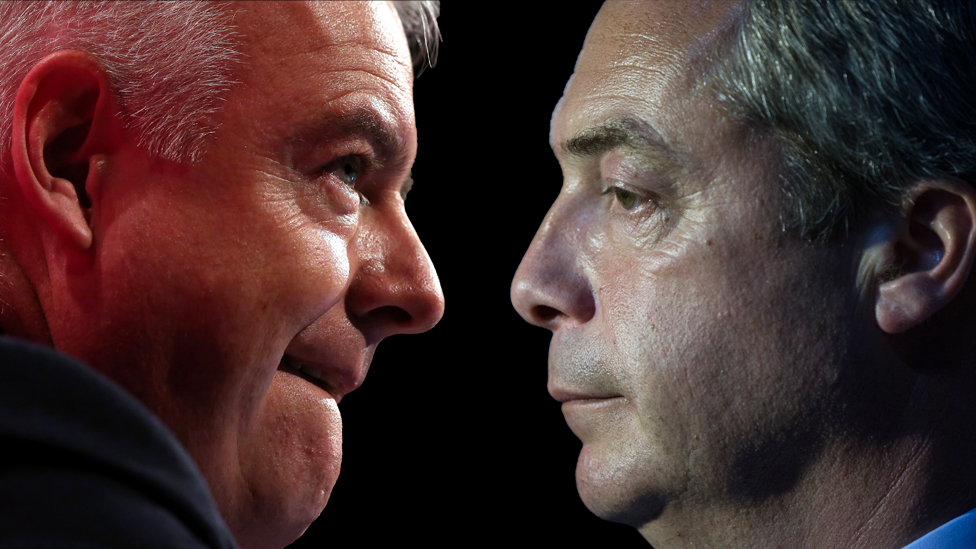
- Published10 January 2016
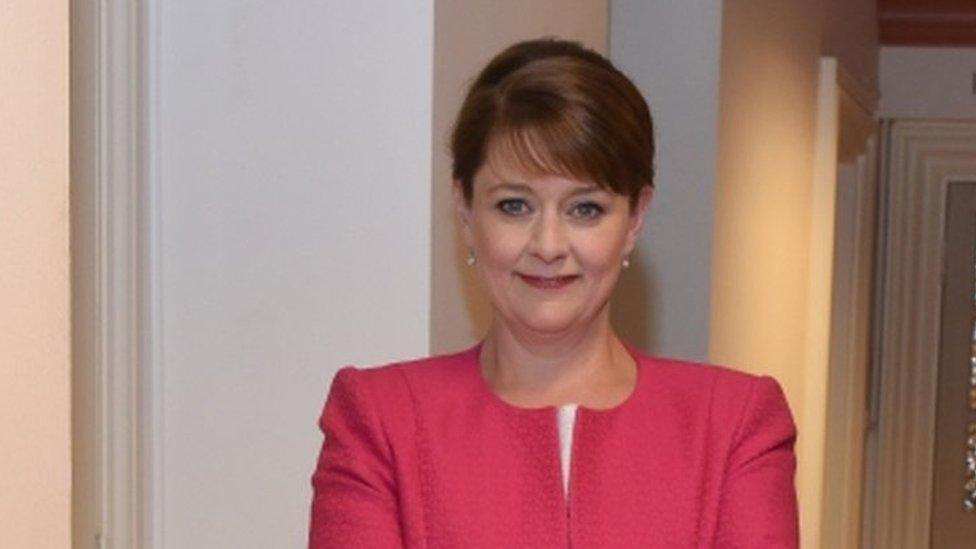
- Published14 December 2015
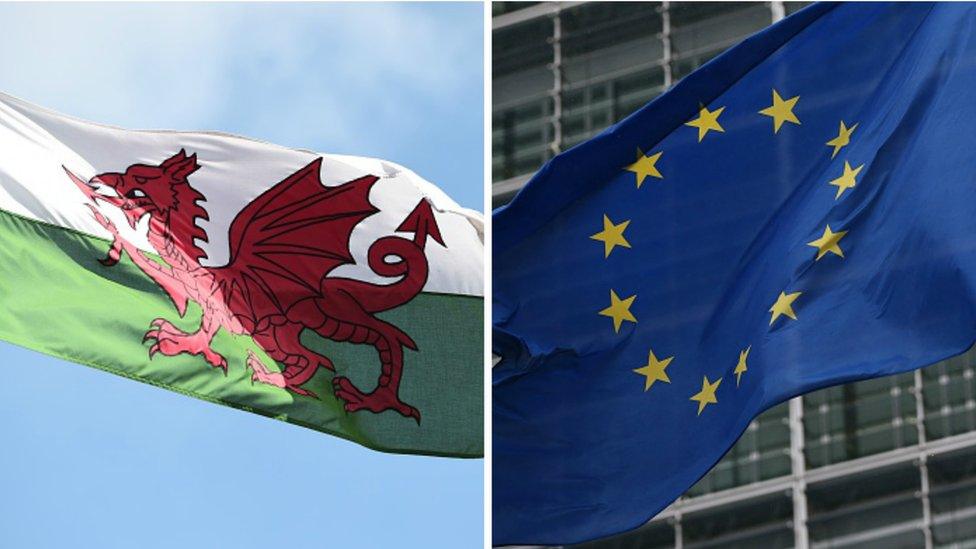
- Published20 May 2015
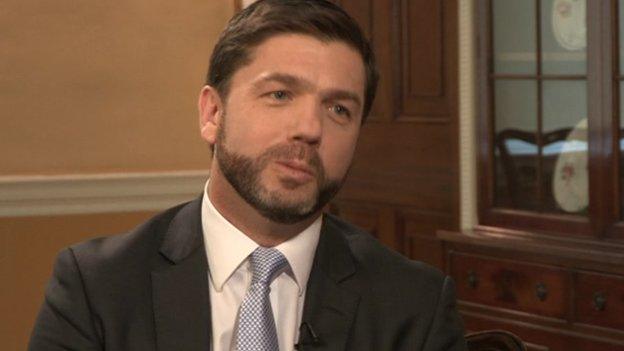
- Published30 December 2020
